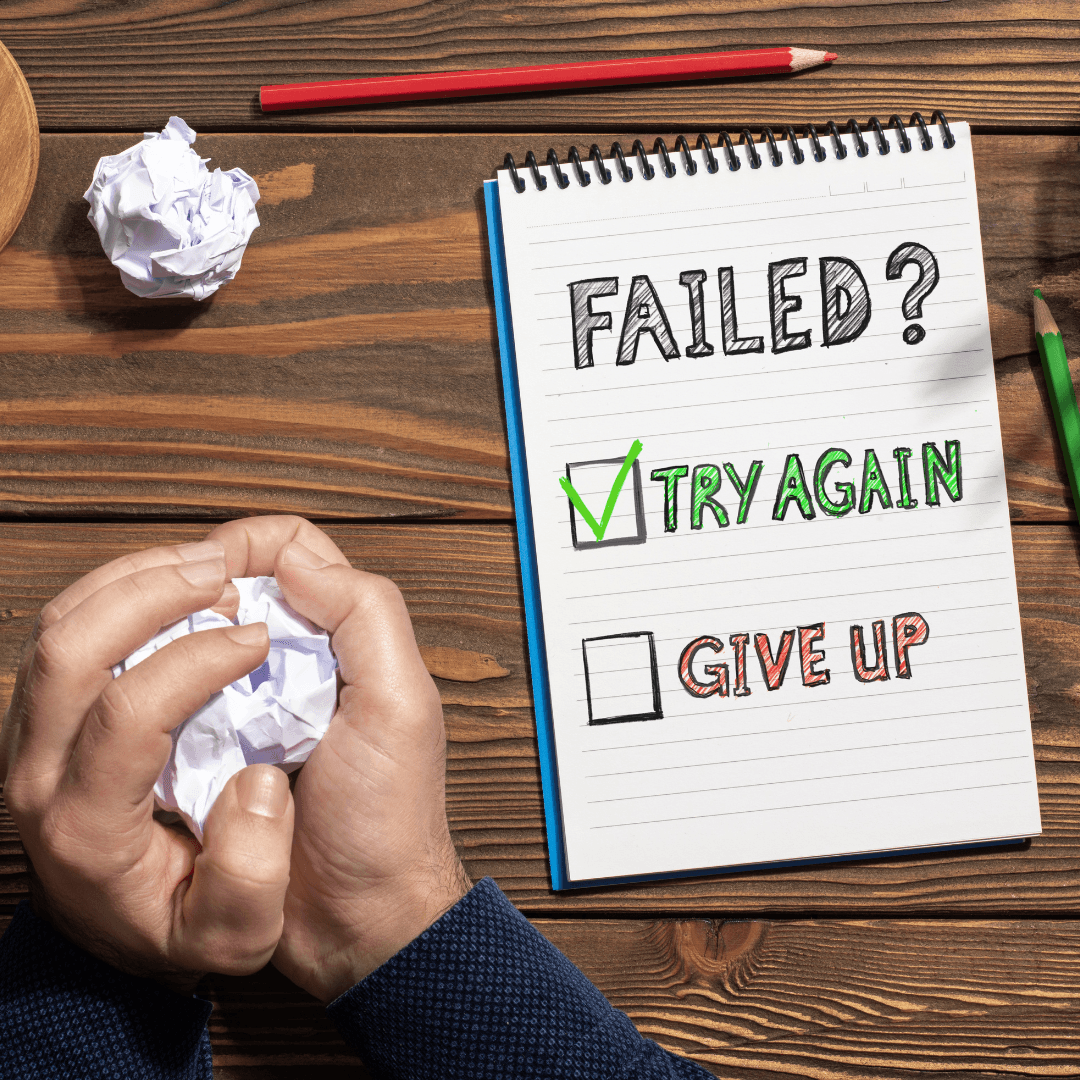When we think of highly innovative companies like Apple, Google, or Facebook, we usually picture their groundbreaking successes. But what if I told you that lists of the “biggest product failures of all time” are also peppered with these same iconic innovators? It tells us something crucial: Everybody fails. It’s what you do with those failures that truly matters.
Instead of viewing failure as a dead end, the most successful organizations learn to “fail forward”; extracting valuable lessons from setbacks and using that knowledge to fuel future successes.
Learning from “Big Fails”: Lessons from the Innovators
Let’s look at a few well-known examples:
- Facebook Phone (2013): Facebook misjudged the market for a phone centered entirely around its platform. The dedicated device flopped. Fail Forward: This misstep forced Facebook to redouble its efforts on its mobile applications, drastically improving them and making mobile a cornerstone of its massive success today.
- Apple Pippin (1995): Apple’s early attempt at a multifaceted gaming/web/education console failed commercially. It was likely too early for the market, and by trying to do too much, it did nothing exceptionally well. Fail Forward: Six years later, Apple launched the iPod. It was a focused device that did one thing (play music) brilliantly, integrating seamlessly with iTunes. The learnings from Pippin’s lack of focus and content clearly informed the iPod’s winning strategy.
- McDonald’s Arch Deluxe (1996): An early attempt to “adultify” its menu, the Arch Deluxe didn’t resonate enough to be a standalone hit. Fail Forward: McDonald’s recognized the underlying need was real, even if the initial solution missed. They’ve since continued to innovate their menu with more adult-oriented options, premium burgers, and customized offerings, learning from each iteration. When the core problem is real, it’s worth continuing to innovate around the solution.
- Maxwell House Coffee In A Box (1990): This “premium instant” (actually real brewed coffee in a box, ready to heat) was about 20 years too early. Missed Fail Forward Opportunity (by them, seized by others!): Maxwell House didn’t seem to pivot from this. But others did! What if they’d marketed it as a cold premium coffee? The iced coffee market is now huge. Or what if they’d focused on the “instant but not instant” need? Keurig and Tassimo later captured this by engineering a better “brew on demand” experience. Sometimes, the failure of one opens the door for another’s (or your own future) success if the right lessons are applied.

The “Fail Forward” Mindset for Your SMB & Its Technology Initiatives
As a fractional CIO advising Small and Medium-Sized Businesses (SMBs), fostering a “fail forward” mindset is crucial, especially when it comes to technology and innovation. SMBs often have limited resources, so making every investment count, even the “failures”, is key. This means:
- Embracing “Little f failures”: As discussed in “fail to Avoid Failure“, encourage small-scale experiments, pilot programs for new software, and MVPs (Minimum Viable Products) for tech-enabled services. These allow you to learn and adapt quickly with minimal risk.
- Creating a Learning Culture around IT: When a technology initiative doesn’t go as planned, the focus should be on “What did we learn?” and “How can we apply these lessons?” not on blame.
- Iterating on IT Strategy: Your technology roadmap shouldn’t be set in stone. It needs to be a living document that adapts based on business results, user feedback from tech implementations, and learnings from both successes and setbacks.
“Failing forward” isn’t really failure in the traditional sense. It’s progress. It’s how smart SMBs de-risk innovation and build a path to sustainable success.
What’s Next
The journey of innovation is paved with experiments, some of which won’t yield the expected results. The key is to ensure that every experience, success or setback, provides learning that propels you forward. As Woody Allen said, “If you’re not failing every now and again, it’s a sign you’re not doing anything very innovative.” Make sure your SMB is failing forward.
Is your SMB equipped to learn from setbacks and turn them into stepping stones for future innovation, especially in your technology endeavors? If you’re looking for a strategic partner to help you build a resilient, learning-oriented approach to your IT strategy and execution, let’s connect with Succeed Sooner Consulting.


Leave a Reply